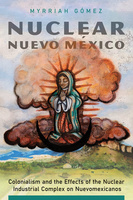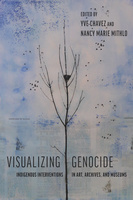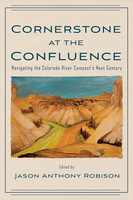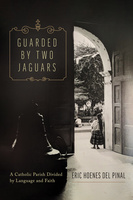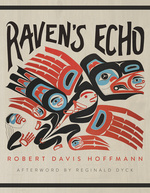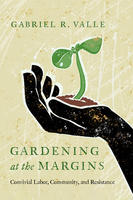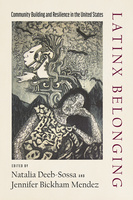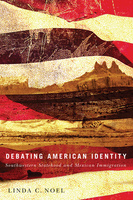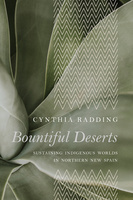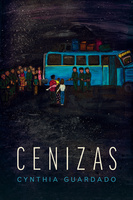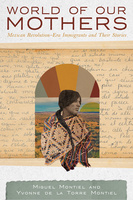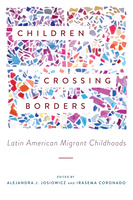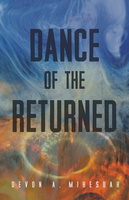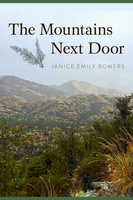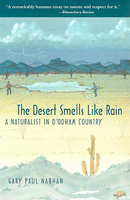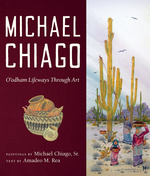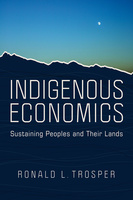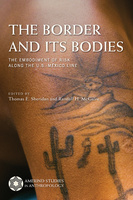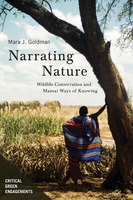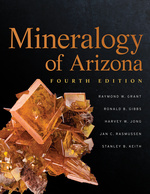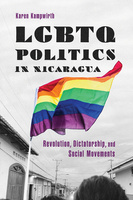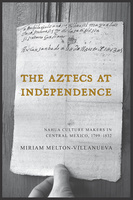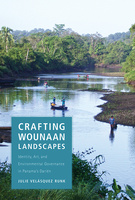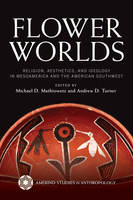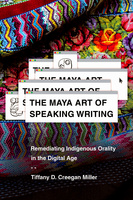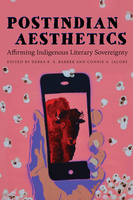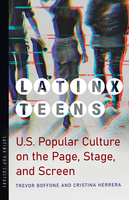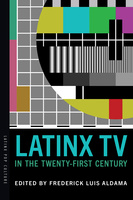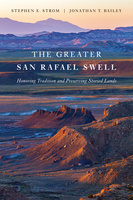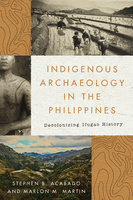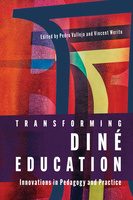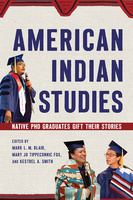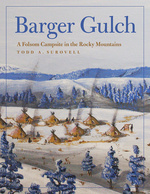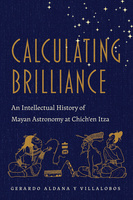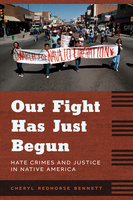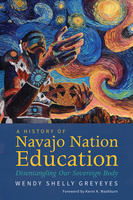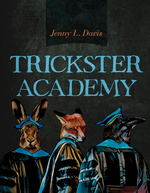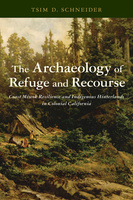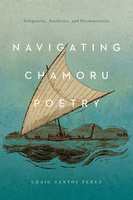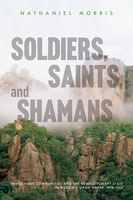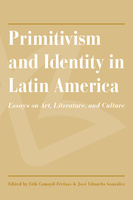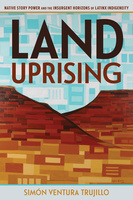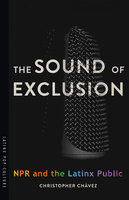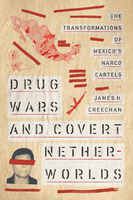The University of Arizona Press is the premier publisher of academic, regional, and literary works in the state of Arizona. They disseminate ideas and knowledge of lasting value that enrich understanding, inspire curiosity, and enlighten readers. They advance the University of Arizona’s mission by connecting scholarship and creative expression to readers worldwide.
Nuclear Nuevo México
Colonialism and the Effects of the Nuclear Industrial Complex on Nuevomexicanos
Nuclear Nuevo México recovers the voices and stories that have been lost or ignored in the telling of U.S. nuclear history. By recuperating these narratives, Myrriah Gómez tells a new story of New Mexico, one in which the nuclear history is not separate from the collective colonial history of Nuevo México but instead demonstrates how earlier eras of settler colonialism laid the foundation for nuclear colonialism in New Mexico.
Visualizing Genocide
Indigenous Interventions in Art, Archives, and Museums
Visualizing Genocide engages the often sparse and biased discourses of genocidal violence against Indigenous communities documented in exhibits, archives, and museums. Essayists and artists from a range of disciplines identify how Native knowledge can be effectively incorporated into memory spaces.
Cornerstone at the Confluence
Navigating the Colorado River Compact's Next Century
Guarded by Two Jaguars
A Catholic Parish Divided by Language and Faith
This ethnography examines the role of language and embodied behaviors in producing a congregational split in a Catholic parish serving Guatemala’s Q’eqchi’ Maya people. Drawing on a range of methods from linguistic and cultural anthropology, author Eric Hoenes del Pinal examines how the introduction of the Catholic Charismatic Renewal movement in the parish produced a series of debates between parishioners that illustrate the fundamentally polyvocal nature of Catholic Christianity.
Raven's Echo
Gardening at the Margins
Convivial Labor, Community, and Resistance
This book explores how a group of home gardeners grow food in the Santa Clara Valley to transform their social relationships, heal from past traumas, and improve their health, communities, and environments.
Latinx Belonging
Community Building and Resilience in the United States
Accessible and engaging, Latinx Belonging underscores and highlights Latinxs’ continued presence and contributions to everyday life in the United States as they both carve out and defend their place in society.
Debating American Identity
Southwestern Statehood and Mexican Immigration
Bountiful Deserts
Sustaining Indigenous Worlds in Northern New Spain
Set in the arid lands of northwestern Mexico, this book foregrounds the knowledge of Indigenous peoples who harvested the desert as bountiful in its material resources and sacred spaces. Author Cynthia Radding uses the tools of history, anthropology, geography, and ecology to re-create the means of defending Indigenous worlds through colonial encounters, the formation of mixed societies, and the direct conflicts over forests, grasslands, streams, and coastal estuaries that sustained wildlife, horticulture, foraging, hunting, fishing, and—after European contact—livestock and extractive industries. She returns in each chapter to the spiritual power of nature and the enduring cultural significance of the worlds that Indigenous communities created and defended.
Cenizas
Poems
Cenizas offers an arresting portrait of a Salvadoran family whose lives were shaped by tumultuous global politics. Cynthia Guardado’s poems argue that the Salvadoran Civil War permanently altered the Salvadoran people’s reality by forcing them to become refugees who continue to leave their homeland, even decades after the war.
World of Our Mothers
Mexican Revolution–Era Immigrants and Their Stories
Children Crossing Borders
Latin American Migrant Childhoods
Dance of the Returned
The disappearance of a young Choctaw leads Detective Monique Blue Hawk to investigate a little-known ceremonial dance. As she traces the steps of the missing man, she discovers that the seemingly innocuous Renewal Dance is not what it appears to be. After Monique embarks on a journey that she never thought possible, she learns that the past and future can converge to offer endless possibilities for the present. She must also accept her own destiny of violence and peacekeeping.
The Desert Smells Like Rain
A Naturalist in O'odham Country
Michael Chiago
O’odham Lifeways Through Art
Indigenous Economics
Sustaining Peoples and Their Lands
The book explains how Indigenous peoples organize their economies for good living by supporting relationships between humans and the natural world. This work argues that creating such relationships is a major alternative to economic models that stress individualism and domination of nature.
The Border and Its Bodies
The Embodiment of Risk Along the U.S.-México Line
Narrating Nature
Wildlife Conservation and Maasai Ways of Knowing
Narrating Nature opens up dialogue that counters traditional conservation narratives. It offers conservation efforts that not only include people as beneficiaries but also demonstrate how they are essential and knowledgeable members of the conservation landscape itself.
Mineralogy of Arizona, Fourth Edition
This is most comprehensive book yet to describe the minerals known to occur in Arizona. It presents a framework of Arizona’s mineralogy and a set of mineral district maps that can help identify new mineral occurrences. A must-have resource for anyone interested in Arizona minerals, gemstones, fluorescent minerals, and geology.
LGBTQ Politics in Nicaragua
Revolution, Dictatorship, and Social Movements
Unwriting Maya Literature
Ts'íib as Recorded Knowledge
The Aztecs at Independence
Nahua Culture Makers in Central Mexico, 1799–1832
Crafting Wounaan Landscapes
Identity, Art, and Environmental Governance in Panama's Darién
A Love Letter to This Bridge Called My Back
In 1981, Chicana feminist intellectuals Cherríe Moraga and Gloria Anzaldúa published what would become a foundational legacy for generations of feminist women of color—the seminal This Bridge Called My Back: Writings by Radical Women of Color. To celebrate and honor this important work, editors gloria j. wilson, Joni B. Acuff, and Amelia M. Kraehe offer new generations A Love Letter to This Bridge Called My Back.
Pachamama Politics
Campesino Water Defenders and the Anti-Mining Movement in Andean Ecuador
Flower Worlds
Religion, Aesthetics, and Ideology in Mesoamerica and the American Southwest
The recognition of Flower Worlds is one of the most significant breakthroughs in the study of Indigenous spirituality in the Americas.Flower Worldsis the first volume to bring together a diverse range of scholars to create an interdisciplinary understanding of floral realms that extend at least 2,500 years in the past.
The Maya Art of Speaking Writing
Remediating Indigenous Orality in the Digital Age
Challenging the distinctions between “old” and “new” media and narratives about the deprecation of orality in favor of inscribed forms, The Maya Art of Speaking Writing draws from Maya concepts of tz’ib’ (recorded knowledge) and tzij, choloj, and ch’owen (orality) to look at expressive work across media and languages.
Postindian Aesthetics
Affirming Indigenous Literary Sovereignty
Latinx Teens
U.S. Popular Culture on the Page, Stage, and Screen
Latinx Teens examines how Latinx teenagers influence twenty-first-century U.S. popular culture. The book explores the diverse ways that contemporary mainstream film, television, theater, and young adult literature invokes, constructs, and interprets adolescent Latinidad.
Latinx TV in the Twenty-First Century
Latinx TV in the Twenty-First Century offers an expansive and critical look at contemporary television by and about U.S. Latinx communities. This volume unpacks the negative implications of older representation and celebrates the progress of new representation, all while recognizing that television still has a long way to go.
The Greater San Rafael Swell
Honoring Tradition and Preserving Storied Lands
Indigenous Archaeology in the Philippines
Decolonizing Ifugao History
This book illustrates how descendant communities can take control of their history and heritage through active collaboration with archaeologists. Drawing on the Philippine Cordilleran experiences, Indigenous Archaeology in the Philippines discusses how changing historical narratives help empower peoples who are traditionally ignored in national histories.
Transforming Diné Education
Innovations in Pedagogy and Practice
American Indian Studies
Native PhD Graduates Gift Their Stories
Native American doctoral graduates of American Indian Studies (AIS) at the University of Arizona, the first AIS program in the United States to offer a PhD, gift their stories. The Native PhD recipients share their journeys of pursuing and earning the doctorate, and its impact on their lives and communities.
Barger Gulch
A Folsom Campsite in the Rocky Mountains
The Community-Based PhD
Complexities and Triumphs of Conducting CBPR
This volume explores the complex and nuanced experience of doing community-based research as a graduate student. Contributors from a range of scholarly disciplines share their experiences with CBPR in the arts, humanities, social sciences, public health, and STEM fields.
Calculating Brilliance
An Intellectual History of Mayan Astronomy at Chich’en Itza
Cardinal in My Window with a Mask on Its Beak
Winner of the 2021 Ambroggio Prize of the Academy of American Poets
Cardinal in My Window with a Mask on Its Beak offers the insightful voice of a first-generation immigrant to the United States in both Spanish and English. The poems, both fantastical and real, create poetic portraits of historical migrants, revealing shocking and necessary insights into humanity while establishing a transatlantic dialogue with the great voices of the Spanish Renaissance.
The Book of Wanderers
Our Fight Has Just Begun
Hate Crimes and Justice in Native America
Our Fight Has Just Begunilluminates Native voices while exposing how the justice system has largely failed Native American victims and families. This book tells the untold stories of hate crimes committed against Native Americans in the Four Corners region of the United States.
A History of Navajo Nation Education
Disentangling Our Sovereign Body
Trickster Academy
Trickster Academy is a collection of poems that explore the experience of being Native in Academia—from land acknowledgement statements, to mascots, to the histories of using Native American remains in anthropology. This collection illuminates the shared experiences of Indians across many regions, and all of us who live amongst Tricksters.
The Archaeology of Refuge and Recourse
Coast Miwok Resilience and Indigenous Hinterlands in Colonial California
Navigating CHamoru Poetry
Indigeneity, Aesthetics, and Decolonization
Soldiers, Saints, and Shamans
Indigenous Communities and the Revolutionary State in Mexico's Gran Nayar, 1910–1940
Soldiers, Saints, and Shamans documents how and why the Indigenous Náayari, Wixárika, O’dam, and Mexicanero peoples took part in the Mexican Revolution as they struggled to preserve their cultures, lands, and political autonomy in the face of civil war, bandit raids, and radical political reform. In unpacking the ambiguities that characterize their participation in this tumultuous period, it sheds light on the inner contradictions of the revolution itself.
Primitivism and Identity in Latin America
Essays on Art, Literature, and Culture
Land Uprising
Native Story Power and the Insurgent Horizons of Latinx Indigeneity
Land Uprising reframes Indigenous land reclamation as a horizon to decolonize the settler colonial conditions of literary, intellectual, and activist labor. Simón Ventura Trujillo argues that land provides grounding for rethinking the connection between Native storytelling practices and Latinx racialization across overlapping colonial and nation-state forms.


